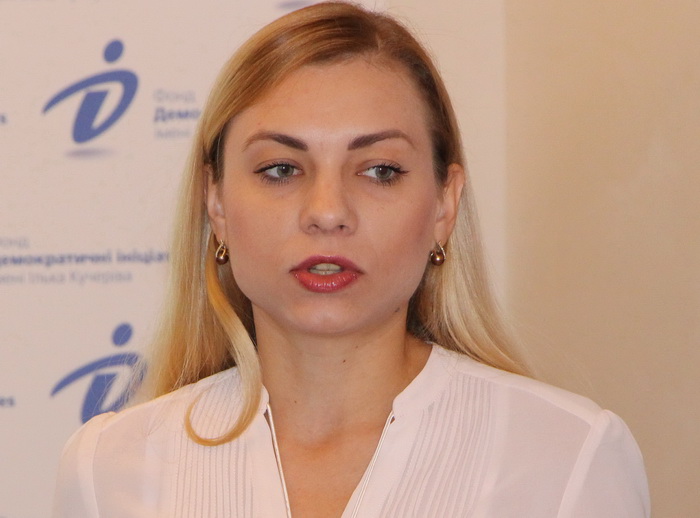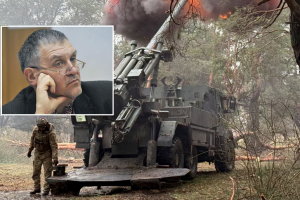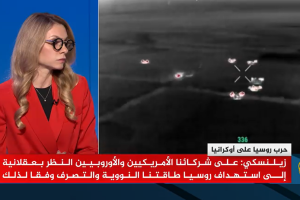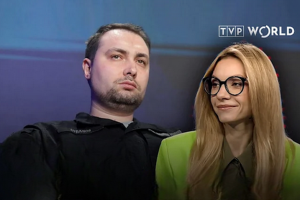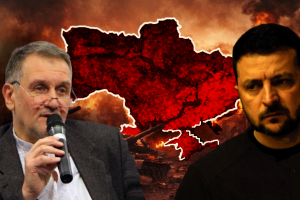The Hague “issue”: a legal case with a political overtone
Maria Zolkina political analyst, Democratic Initiatives Foundation | The first decision of the UN International Court of Justice in The Hague in the case of Ukraine versus Russia has been passed down and announced. Given that the Court drew somewhat distinctive conclusions regarding two components of the claim filed by Ukraine – specifically, the situations in Crimea and in the Donbas – the latter is demanding a separate assessment. So, despite all the details that will be discussed below the main truly victorious moment can be considered that fact that the Court acknowledged its jurisdiction regarding both cases – both regarding Crimea (which was expected) and regarding the Donbas (where it would be more likely that the court would refuse to review the case in essence). The decision in the part of the claim concerning the Donbas adds optimism during the overall political assessments. |
Hence, the Court did not fully satisfy the demands of Ukraine regarding temporary measures. Moreover, it refused outright to satisfy those demands regarding the Donbas. The results regarding the measures with Crimea and that the right of the Court to review this claim have been confirmed and temporary sanctions have been partially imposed can be called a success, so to speak. In particular, it is without a doubt crucially important that the obligations of Russia regarding the guarantee of rights of bodies to engage in the political representation of the Crimean Tatars, including the reinstatement of the work of the Mejlis, were defined in a separate point in the court’s ruling. For the most susceptible group on the occupied peninsula this is clearly a victory, even if nothing changes in principle in the internal politics of Russia regarding the Crimean Tatars. And there are no illusions that the situation regarding access to learning the Ukrainian language in Crimea will change. It is an undeniable fact that the decision regarding representative institutions of Crimean Tatars raises certain questions, while the demands to stop persecutions and prevent the disappearance of Crimean Tatars are not subject to investigations into clearly evident incidents of this nature.
In short, there is something worth analyzing regarding both Crimea and the Donbas, though neither in the first case, nor in the second case, can any assessments be relegated to the categories “black-white” or “treason-victory”. At the same time, the decision, more precisely, the refusal to approve the decision on sanctions due to the situation in the Donbas is a more interesting case from the vantage point of the political repercussions and risks it may entail.
Hence, the demands of Ukraine on limitation were rejected due to the situation in the Donbas. Is this a fiasco? In no way whatsoever can it be called a fiasco. First of all, nobody was hoping for a “victory” in the sense of the satisfaction of all of Ukraine’s claims. Secondly, it is good that the court in the initial stage in principle acknowledges that in the actions of Russia there may be signs of violation of the respective Convention for the Suppression of the Financing of Terrorism. And this second aspect testifies to the failure of the line of defense chosen by Russia.
In light of this, recall that the Russian delegation practically did not at all dispute the concrete examples put forth by the Ukrainian side (shootings in Mariupol, in Volnovacha, the destroyed MH-17 and other examples), but instead argued that: a) this is not the jurisdiction of this court at all; b) there are indeed combat actions in the Donbas, which is why considering accusations of complicity of one or the other in terrorist activity in the context of military actions is absurd. As a result, both the first and the second “pillars” of Russia’s position were realistically ruined by the decision of the Court to take on this case. And although the term “won-lost” is not expedient and unacceptable in this case, it can be said after all: the recognition of the jurisdiction of the court regarding the Donbas clearly has much greater meaning than the refusal of the court to resort to imposing sanctions against Russia for the time being.
Aside from that, Ukraine cannot diplomatically and politically “unfold” these positive moments in the part of the claim regarding the events in the East as broadly as it could have done on conditions of at least partial approval of applying temporary measures. Moreover, Russia in its diplomatic and informational activity will obviously insist on the fact that there are no sanctions and there is no pretext for accusations.
The informational and political manipulations on these grounds will not be delayed and honestly speaking for the poorly informed or little interested audience they will in some way be quite convincing. Why? The whole essence is in those concrete limitative measures that Ukraine requested. Here there was a requirement that Russia control its border to preempt cases of illegal transgression of people, equipment, etc.; and about rendering impossible money transfers and other forms of financial and material assistance, including equipment and weaponry, from the territory of Russia to the territory of the DPR and the LPR; and so that new terrorist acts were not committed and so on. Even if the decision of the court to not satisfy the demands of Ukraine will look “smooth”, the political aftertaste remains legally intact, no offense to lawyers intended.
The court did not find grounds to resort to even such a seemingly politically “safe” measure as obligating Russia to the due control of its border with the aim of preventing financial or armed support of terrorist activities against the civilian population in Ukraine initiated from the territory of Russia.
From the political or factological point of view, the fact that such support is not being suspended and thanks to it the so-called DPR and LPR exist requires no explanation to Ukrainians or well-informed audiences abroad. It has already turned out that Ukraine’s arguments are insufficient for the court to deem such support on the part of Russia as deliberate and targeted and therefore it did not find any grounds for imposing provisional sanctions against Russia. For example, recall that the Russian delegation itself insisted during the first hearings among other things that it had no intentions of downing a civilian aircraft with missiles fired from the BUK installation. And here the logic of the Russian delegation turned out to be more convincing – it did not object to some of the facts, rather more likely to the presence of malice aforethought in any actions which the Ukrainian side “ascribed” to Russia.
In the big picture, Ukraine (according to testimony of official participants of the delegation, in particular, representatives of Ukraine’s Ministry of Foreign Affairs) did not have the aim of proving the deliberate nature of the aforementioned support of Russia and substantiating the intentions of Russia at the stage of defining the jurisdiction of the cases. For this very reason, the matter is about legal argumentation, on the one hand, and the political overtone and political conclusions, on the other hand. At the same time, in such a situation there are so to speak “recommendations” and “advice” for the Ukrainian side as to the best way to build its line of behavior during the consideration of the case in essence. As such, Ukraine will clearly focus in the broad sense of the word on two key points:
- Presentation of evidence that Russia violated the Minsk agreements and ignored their principle clauses. In this case it will not simply be a whim of Ukraine or a conditionally comfortable position “approbated” on all other international arenas. Not at all. The fact is that the Court refused to apply provisional measures regarding Russia, but made in its order a separate reference to the existence of the Minsk agreements and the need for unwavering compliance with them by all parties thereto. Initially, this may ostensibly seem like outright mockery: they did not see intentions and the deliberate nature of the actions of Russia, but they did emphasize the need to execute the “dead” Minsk package. But further during the consideration of the case in essence, exactly this will play into the hands of the Ukrainian side because Ukraine has sufficient real facts and evidence of systematic violation of the Minsk agreements on the part of Russia. And most of these facts are certified by the observations of the OSCE mission, the only “independent” actor on this stage from the point of view of the international community.
- Presentation of proof of the deliberate actions of Russia in the context of providing financial and material-technical support to those who committed acts of terrorism pointed to in the above case.
Of course, the tactic will still be defined by the Ukrainian side and the strategy may possibly be slightly adjusted, but the two aforementioned “beacons” are unique hints that logically ensue from the publicized position of the UN International Court of Justice. One thing can be said for sure: Ukraine passed through the first stage and this opens the window of opportunity to prepare for defending its position regarding both cases filed for review by the Court. Herewith, Ukraine must prepare for this and understand which arguments the Court lacks at the moment and how this “shortfall” can be supplemented in the future. In closing, how successful the Ukrainian side will be in capitalizing on this opportunity only time will tell.
Original: “Ukraine’s Interests”

